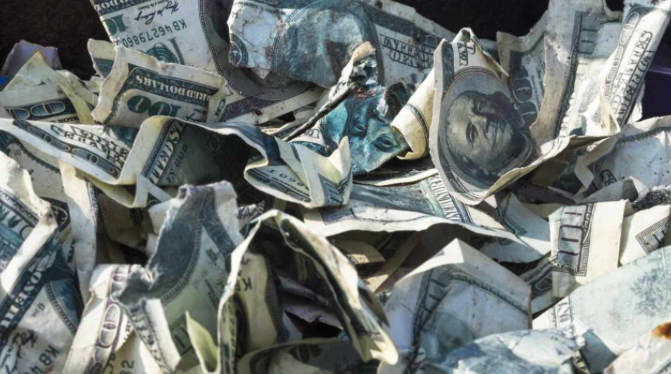Former U.S. President Donald Trump’s economic advisers are reportedly devising strategies to deter nations from reducing their reliance on the U.S. dollar. Proposed deterrents include export controls, currency manipulation charges, and tariffs. Trump remains committed to preserving the U.S. dollar’s dominance as the global reserve currency. Nonetheless, a growing number of countries, particularly BRICS members, are intensifying their efforts to dedollarize.
Trump’s Advisors Explore Tactics to Thwart US Dollar Abandonment
Former U.S. President and presidential candidate Donald Trump’s economic advisers are reportedly discussing strategies to deter countries from diminishing their dependence on the U.S. dollar, Bloomberg reported last week, citing sources familiar with the matter. The discussions focus on potential penalties for both allies and adversaries who engage in bilateral trade using non-dollar currencies. These penalties could include “export controls, currency manipulation charges, and tariffs,” according to the publication.
The USD’s global dominance has faced increasing discontent since the U.S. imposed stringent economic sanctions on Russia in 2022. These sanctions restricted access to the U.S. dollar for various Russian entities, including the central bank, government officials, and approximately 2,500 others.
Meanwhile, the BRICS nations, comprising Brazil, Russia, India, China, and South Africa, along with recent additions of Saudi Arabia, the United Arab Emirates, Iran, Egypt, and Ethiopia, discussed dedollarization during a summit last August. After the summit, the BRICS leaders declared the importance of using local currencies in international trade. In a BRICS meeting in January, Iran advocated for a common currency while China and Russia prioritized settlements in their local currencies.
In May last year, the leaders of the 10 Southeast Asian nations, members of the Association of Southeast Asian Nations (ASEAN), agreed to “encourage the use of local currencies for economic and financial transactions.” The group comprises Brunei, Cambodia, Indonesia, Laos, Malaysia, Myanmar, Philippines, Singapore, Thailand, and Vietnam. Additionally, officials from nine Asian countries, members of the Asian Clearing Union (ACU), convened in Tehran for their annual meeting in the same month, where dedollarization was a key topic.
Trump has consistently advocated for the U.S. dollar’s role as the primary global reserve currency. In a CNBC interview in March, he expressed his opposition to countries abandoning the dollar: “I hate when countries go off the dollar.” The former U.S. president stressed:
I would not allow countries to go off the dollar because when we lose that standard, that will be like losing a revolutionary war … That will be a hit to our country.
“With Biden, you’re going to lose the dollar as the standard. That’ll be like losing the biggest war we’ve ever lost,” Trump stated. He also warned that China aims to supplant the U.S. dollar as the leading global currency and expressed concerns about the potential consequences of the USD losing its status as the world’s reserve currency. “We’ll be a second-tier country,” he cautioned.

